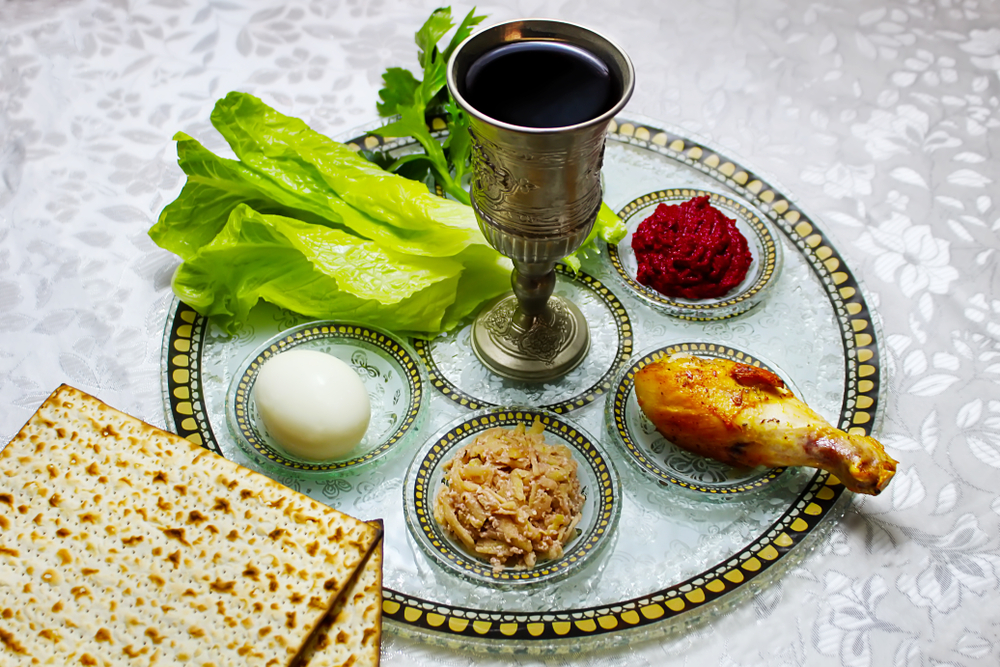
Passover is a special time of year for Jews all around the world. It marks a period of celebration, prayer and reflection, but it also has an important spiritual meaning. From the story of Exodus to the symbolism behind each element of the Seder meal, there’s an underlying message about freedom, faith and family that makes Passover a truly special holiday. In this article, we’ll explore the spiritual meaning behind Passover and how it continues to be celebrated today.
Passover is one of the most important holidays in the Jewish calendar, and its significance dates back thousands of years. The story at its core is that of Exodus when God liberated the Israelites from slavery in Egypt by sending 10 plagues upon Pharaoh and his people. This event was so profound that it has become a symbol of liberation and freedom ever since.
The spiritual meaning behind Passover can be found not just in this momentous story but also in every aspect of the Seder meal that marks its celebration. Through prayers, songs and traditional foods like matzo bread and bitter herbs, Jews remember their ancestors’ journey from slavery to freedom – a journey that still resonates with them today. In this article we’ll delve deeper into this meaning to understand why celebrating Passover has remained so important for so many centuries.
History And Origin Of Passover
Passover is a Jewish holiday commemorating the Israelites’ exodus from Egypt. It’s an important part of the religious tradition known as Judaism, and it serves as a reminder of God’s protection and care for his people. The story behind Passover begins in the book of Exodus, when Moses leads the Israelites out of captivity in Egypt after 400 years. He warned Pharaoh that God would bring a final plague on Egypt if he did not let them go – this plague was to be the death of all firstborn sons in every house. To protect themselves from this tragedy, God instructed Moses to tell each family to sacrifice a lamb, smear its blood on their doorposts, and remain inside until morning. When the angel of death passed through all households, he saw the blood and ‘passed over’ those homes – hence the name ‘Passover’. Through this event, God demonstrated his power by rescuing His people from slavery in Egypt.
Symbolic Traditions And Rituals
Passover is much more than a holiday commemorating the Jews’ exodus from Egypt. It is also a spiritual journey full of symbolic traditions and rituals that are meaningful to the Jewish people.
The first and most important tradition is the Seder meal. This takes place on the first two nights of Passover and is full of symbolic foods that represent different elements of the story. For example, matzo represents freedom, bitter herbs symbolize suffering, and charoset reflects the mortar that the Israelites used while enslaved in Egypt. During this meal, it’s traditional to read from a special book called The Haggadah. This book contains prayers, songs, stories, and teachings about what Passover means spiritually.
The spiritual meaning behind Passover ties into its origin story as well as its modern-day celebration. It serves as a reminder of God’s power to save his people and bring them out of darkness into light. It’s also a reminder of our own potential for transformation – an invitation to be liberated from whatever may be holding us back in life so that we can move forward with faith and joy.
The Significance Of Jesus Christ
The significance of Jesus Christ in relation to Passover is undeniable. He is often referred to as “The Lamb of God,” a reference to the sacrificial lamb that was offered in the original Passover ritual. The New Testament references the idea that God sent Jesus to take away our sins and be a sacrifice for us, much like the sacrificial lambs of ancient times. It’s believed that his death replaced all other animal sacrifices, thus unifying man with God through Jesus’ ultimate sacrifice.
Jesus’ resurrection is also significant in the context of Passover. It serves as a reminder that despite darkness and difficulty, hope triumphs over despair, and evil can never defeat love. This is what makes Easter such an important part of the Christian faith – it symbolizes new life, optimism, and joy after a period of sadness and struggle. Additionally, it serves as a reminder that Jesus overcame death and rose again, so too can we overcome any obstacle or situation we face.
Passover celebrates this momentous event each year – which is why it’s sometimes referred to as “the Feast of the Resurrection.” To Christians, it’s a time of reflection and celebration, not only remembering what Jesus did for us but also looking forward to his return one day and ultimately being reunited with him in Heaven.
Spiritual Lessons For Believers
Passover offers many spiritual lessons for believers. This ancient feast serves as a reminder of the faithfulness of God and His divine plan to redeem mankind from sin. It also serves as a reminder of Jesus’ sacrifice on the cross and of the resurrection that followed.
The Passover celebration is a powerful reminder that we are not alone and that God will never leave us or forsake us. During this time, believers can remember that Christ is the ultimate source of hope and strength—the one who has overcome death so that we can have life eternal in Him. Moreover, it reminds us to remain humble before God, knowing that He alone is our salvation, our only hope and refuge in times of trouble.
As we celebrate Passover each year, let us remember these spiritual truths: Jesus died for our sins so that we may have life eternal; He is our source of strength and hope; and He has given us His Spirit to guide us through life’s trials and tribulations. Let us thank God for His grace and mercy and seek to live lives worthy of His great love.
Contemporary Celebrations
Today, Passover is celebrated by Jews all around the world. Many families gather around a traditional seder plate to celebrate the festival, eating symbolic foods like matzo (unleavened bread) and bitter herbs. The youngest person at the table reads out the story of the Exodus, asking four questions that are answered by everyone present. After dinner, prayers of gratitude and thanksgiving are shared.
The celebration of Passover has remained an important part of Jewish culture for centuries, even after the destruction of the Second Temple in 70 CE. In modern times, it has become an opportunity to reflect on themes such as freedom and justice while also spending time with family and friends.
Passover is a reminder that history can repeat itself – but only if we let it. By coming together each year to commemorate our past and share what we’ve learned from it, we create hope for a brighter future full of peace and understanding.
Conclusion
The spiritual meaning behind Passover is deeply rooted in its history, traditions, and rituals. It is a reminder of God’s unending love for His people. Through this ancient celebration, we can draw inspiration from the stories and lessons it brings to our lives.
Passover allows us to be mindful of our faith and relationship with God. It encourages us to remember how He has delivered us from slavery and given us the gift of life. We can also use this time to reflect on our own spiritual journey and renew our commitment to serving Him faithfully.
By celebrating Passover, we are reminded that no matter what challenges or obstacles we face in life, God will always be there to provide strength and guidance. As we gather together during this special season, may we all be strengthened by its sacred message and move forward with renewed hope in His promises for the future.







